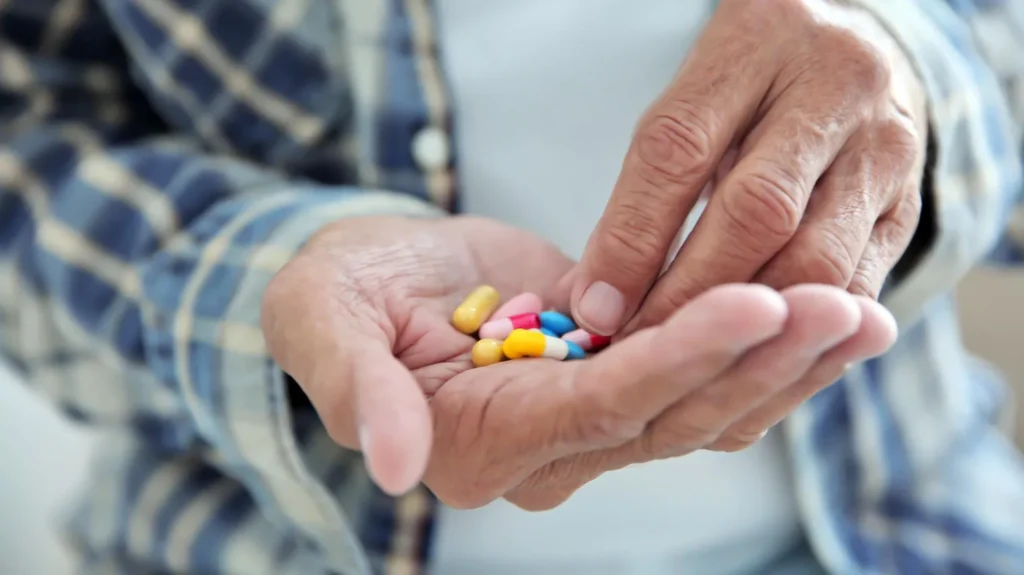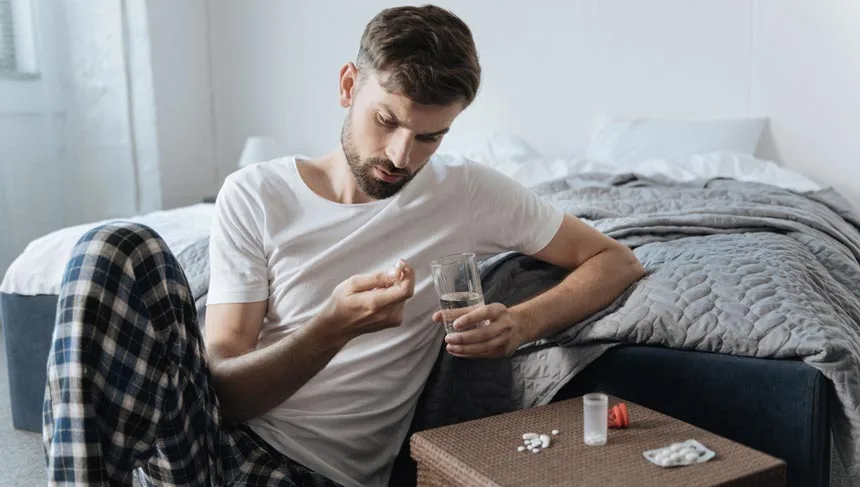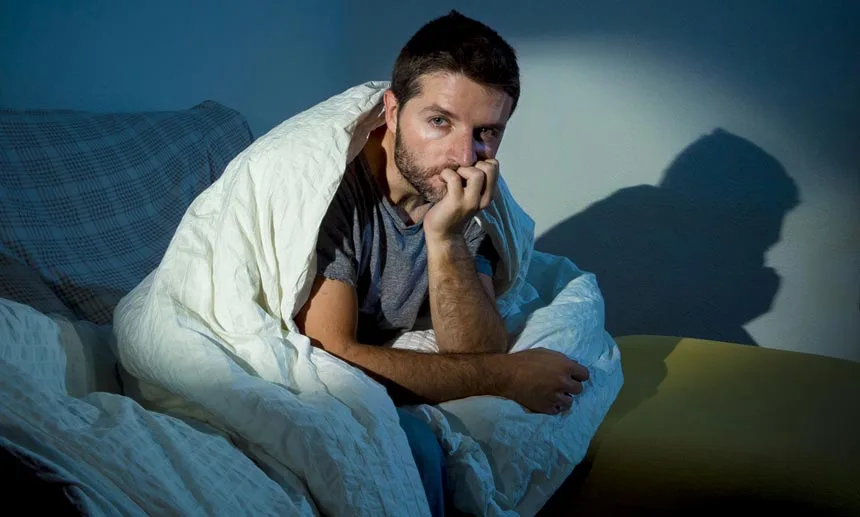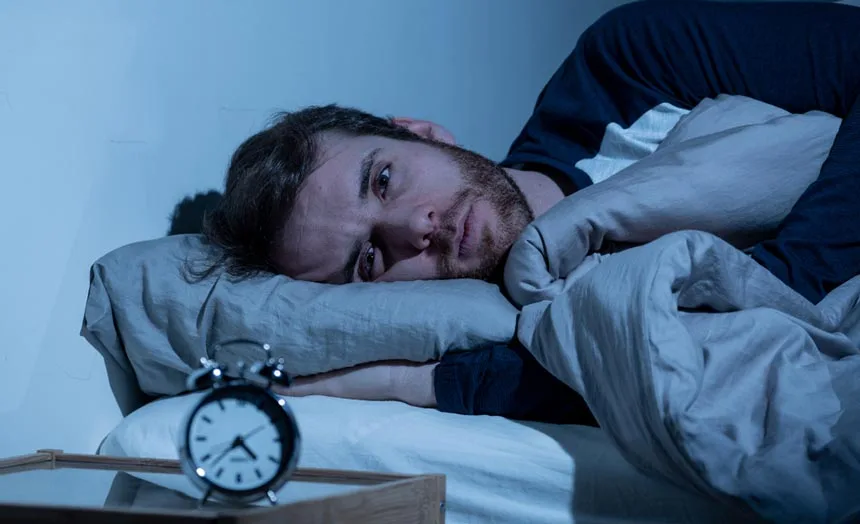Finding the Right Benzo Detox Near You
Table of Contents
- Finding the Right Benzo Detox Near You
- What are Benzodiazepines?
- How are Benzodiazepines Used?
- Benzodiazepine Abuse and Addiction
- Benzodiazepine Withdrawal Symptoms
- Managing Benzodiazepine Withdrawal Symptoms
- How Long Is Benzodiazepine Withdrawal?
- The Benzodiazepine Detox Process
- Other Benzodiazepine Addiction Treatment Methods
- FAQs On Finding a Benzo Detox Near Me
- Find a Benzo Detox Near You Today!
- Medically Reviewed By
Benzodiazepines are a class of drugs commonly prescribed to treat anxiety, insomnia, and alcohol withdrawal. While these medications can be beneficial, they can also be addictive, and those who become dependent on them can experience a range of uncomfortable withdrawal symptoms when they stop taking them.
If you are looking for a ‘benzo detox near me’ to help you stop using benzos, it is important to first understand what the detox process looks like. Keep reading to learn more about benzodiazepine detox, and how you can find substance abuse treatment services near you today!
What are Benzodiazepines?
Benzodiazepines are a class of medications commonly prescribed to treat a wide range of conditions, including generalized anxiety disorder, insomnia, alcohol withdrawal, and seizures. They are also used to treat muscle spasms and reduce symptoms of agitation, restlessness, and irritability.
Benzodiazepines work by increasing the activity of the GABA neurotransmitter in the brain, which helps to reduce anxiety and promote relaxation. These prescription medications are generally considered to be safe and effective when used as prescribed, but they can be habit-forming with chronic use and should be taken only as directed.
How are Benzodiazepines Used?
Benzodiazepines are typically used for short-term treatment, usually lasting a few weeks or months. In some cases, they may be prescribed for longer periods of time. In these cases, the dose should be slowly tapered off to avoid withdrawal symptoms.
These medications can be taken orally, intramuscularly, or intravenously. The dosage and frequency of administration will depend on the individual’s specific condition and treatment needs.
Benzo use is generally considered safe and effective when used correctly. It is important to discuss any potential side effects with your doctor and to follow their instructions carefully. If you experience any side effects that are concerning, it is important to contact your doctor right away.
Benzodiazepine Abuse and Addiction
Benzodiazepine abuse can occur when someone takes the medication in higher doses or more frequently than prescribed. It can also occur when someone takes another person’s medication or when the medication is combined with other substances, such as alcohol or opioids.
People who abuse benzos may experience a number of short-term side effects, including confusion, drowsiness, impaired coordination, and memory problems. Over time, this drug abuse can lead to more serious issues, such as depression, anxiety, and cognitive impairments.
In addition, long-term benzo abuse can cause physical dependence and benzodiazepine addiction, which can lead to withdrawal symptoms if the drug is stopped suddenly.
The risk of addiction is especially high with benzos, as they can cause a feeling of euphoria that people may seek to recreate. People may also become tolerant to the effects of the drug, meaning that they have to take higher doses in order to achieve the desired effects.
If you or someone you know is struggling with benzo abuse or addiction, it is important to seek help. Treatment for benzo addiction typically begins with a medical detox, which is monitored by medical professionals. This is followed by counseling and therapy to help the person learn how to cope with their addiction and make lifestyle changes that can help prevent a relapse.
Benzodiazepine Withdrawal Symptoms
When someone stops taking benzos after a long period of abuse, they will be at risk of experiencing withdrawal side effects. Benzodiazepine withdrawal symptoms can range from mild to severe and can last for weeks or months.
Knowing the signs and symptoms of benzodiazepine withdrawal can help you monitor your own health and seek professional help for your substance use disorder if needed.
Physical Withdrawal Symptoms
Benzodiazepine withdrawal symptoms can vary from person to person. Common physical symptoms of benzodiazepine withdrawal include headaches, nausea, vomiting, muscle aches, and insomnia. Other physical symptoms can include increased heart rate, heart palpitations, sweating, and tremors.
Psychological Withdrawal Symptoms
Psychological symptoms of benzodiazepine withdrawal can include anxiety, irritability, depression, and difficulty concentrating. Other psychological symptoms such as confusion, paranoia, delusions, and hallucinations may occur as well.
Severe Withdrawal Symptoms
In some cases, benzodiazepine withdrawal can cause more severe symptoms, such as seizures, psychosis, heart problems, and hallucinations. Severe benzodiazepine withdrawal symptoms can be life-threatening and require medical attention. If you are experiencing any of these symptoms, seek medical help immediately.
Managing Benzodiazepine Withdrawal Symptoms
It is important to remember that benzodiazepine withdrawal symptoms can be highly individualized and range in severity. Some people will experience more severe symptoms than others, and the length and intensity of the withdrawal can vary from person to person.
It is also important to note that withdrawal symptoms can be made worse by suddenly quitting benzos cold turkey. If you are prescribed a benzodiazepine and wish to stop taking it, it is important to consult with your doctor about an appropriate tapering schedule.
Seeking out a medically-assisted detox program can help you safely manage any withdrawal symptoms that may come up and determine if any underlying physical or mental health conditions are contributing to the symptoms.
In some cases, medications or other treatments may be prescribed to help alleviate these symptoms. It is also important to talk to your doctor about any lifestyle changes you can make to help reduce the symptoms and prevent relapse.
How Long Is Benzodiazepine Withdrawal?
Benzodiazepines have a long half-life, which means that they remain in the body for a long time after use. Someone who has become physically dependent on these medications after a long period of drug use will take longer to clear their system of benzos.
This means that the withdrawal process can take weeks or even months, depending on the individual’s level of dependence. Some people may even have protracted withdrawal, which is when they experience withdrawal symptoms for up to a year after stopping their use.
This is why it is so important for you to seek treatment and receive continued support in a professional treatment setting as you recover from your benzodiazepine use.
The Benzodiazepine Detox Process
The process of detoxing from benzodiazepines is known as benzodiazepine withdrawal. This can be a long and difficult process, and it is essential that it is done under the supervision of a medical professional.
When recovering from benzodiazepines, the symptoms of withdrawal that come with this process can be brutal. Having a professional medical team to support and guide you through this process can be crucial to achieving long-term recovery.
The first step in benzodiazepine detox is to gradually reduce the dose of the drug over time. Your vital signs will be regularly monitored throughout this process so that your medical team can provide assistance if needed.
Gradually reducing your benzo use helps to reduce the severity of the withdrawal symptoms and allows the body to gradually adjust to the absence of the drug. It is also important to get plenty of rest and eat a healthy diet during the detox process.
The Importance of Detox in Substance Abuse Treatment
Most benzodiazepine detox centers will provide their clients with a medical team and an individualized treatment plan made to support their specific care needs. In some cases, medications can be used to help with the withdrawal process.
These may include anticonvulsants, antidepressants, and antipsychotics. These medications can help to reduce the severity of the symptoms and make the process of detoxing from benzodiazepines more manageable.
As with any detox process, it is important to be prepared for the potential risks and complications. Benzodiazepine detox can be a difficult process, but with proper medical supervision, it can be done safely and effectively.
Other Benzodiazepine Addiction Treatment Methods
Those struggling with addiction have many treatment options available to them. In the case of benzos, those who are recovering from these substance use disorders will be encouraged to continue their treatment after their initial detox process.
They may choose to seek additional support through inpatient or residential treatment programs, or outpatient rehab and recovery support groups. For those struggling with co-occurring disorders, a dual-diagnosis treatment program may be their best course for recovery.
Many people who abuse benzos have an underlying mental illness that is influencing their addictive habits. It is for this reason that those struggling with benzos are strongly encouraged to seek out some level of mental health treatment to address the underlying causes of their addiction.
With so many treatment options to choose from, knowing which will be best for you can be difficult. The Find Addiction Rehabs team is available to help walk you through the treatment process and understand which levels of care can best serve your needs. Call now!
FAQs On Finding a Benzo Detox Near Me
What are the Most Commonly Abused Benzodiazepines?
The most commonly abused benzos are Xanax, Valium, and Ativan. Xanax is one of the most commonly abused benzos due to its ease of availability and short-acting effects. It is often used recreationally to reduce stress, relieve anxiety, and induce sleep.
Valium is another commonly abused benzo. It is used to treat anxiety, insomnia, muscle spasms, and alcohol withdrawal. It is known for its sedative effects, which make it attractive to recreational users looking for a “high.” Long-term abuse of Valium can lead to addiction, physical dependence, and withdrawal symptoms.
Ativan is the third most commonly abused benzo. It is often prescribed to treat anxiety and seizures, but it can be abused for its sedative effects. Long-term abuse of Ativan can lead to addiction, physical dependence, and a higher risk of overdose.
Can You Overdose On Benzodiazepines?
When taken in large amounts or combined with other drugs or alcohol, benzodiazepines can cause an overdose. Overdosing on benzodiazepines can lead to serious medical complications, including coma and death. Since benzodiazepines are central nervous system depressants, an overdose can cause a person to become drowsy, confused, and lose consciousness.
Other symptoms of a benzodiazepine overdose include shallow breathing, weak or irregular pulse, and loss of coordination. If you suspect that someone has overdosed on benzodiazepines, seek emergency medical attention immediately.
How Do I Know If Someone is Abusing Benzos?
Knowing how to recognize the signs and symptoms of benzo abuse can help you protect yourself and those you care about from its damaging consequences. The most common sign of benzo abuse is the use of the drug in higher doses or for longer than originally intended.
This could mean taking more than the prescribed dosage, taking it more often than prescribed, or using it recreationally. Another sign of abuse is using benzos with other substances, such as alcohol or opioids, which can increase its effects and the risk of overdose or death.
What Are the Signs Someone May Need Benzo Detox?
Other symptoms of benzo abuse may include drowsiness, confusion, memory problems, impaired coordination, and slurred speech. Some people may also experience feelings of euphoria, fear, or aggression. If you are concerned that someone is abusing benzos, it is important to look for these physical and emotional changes.
In addition to physical and emotional signs, there are a few behavioral changes that may indicate benzo abuse. These include buying large quantities of the drug, doctor-shopping to obtain multiple prescriptions, selling benzos to others, engaging in risky behaviors, and neglecting responsibilities.
If you or someone you care about is abusing benzos, it is important to seek help as soon as possible. The Find Addiction Rehabs team is here to help support you on your road to sobriety, and get you started on your recovery journey whenever you are ready!
Find a Benzo Detox Near You Today!
If you are looking for a benzo detox center near you, the Find Addiction Rehabs team can help. Whether looking to stay nearby for treatment or if you are willing to travel to get the best help possible, our extensive network of rehab facilities is capable of serving all of your care needs.
Our hotline is available 24//7 to answer all of your recovery questions and help you make the most informed decisions for treatment. Call now, and let us help you take the first step on your road to sobriety, today!
Nicole Rogers is an experienced and accomplished writer with special interests in the fields of Anthropology, English, and behavioral health, and has written countless articles for newspaper publications, institutional research journals, and Find Addiction Rehabs.
Her alma mater is Florida Atlantic University in Boca Raton. Nicole hopes to spread awareness of and combat the stigmatization surrounding addiction and substance abuse treatment through her writing and work in the field.






